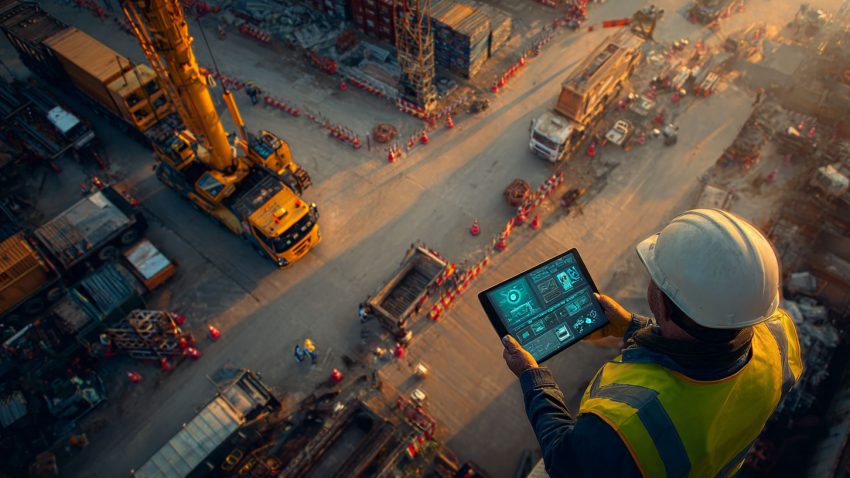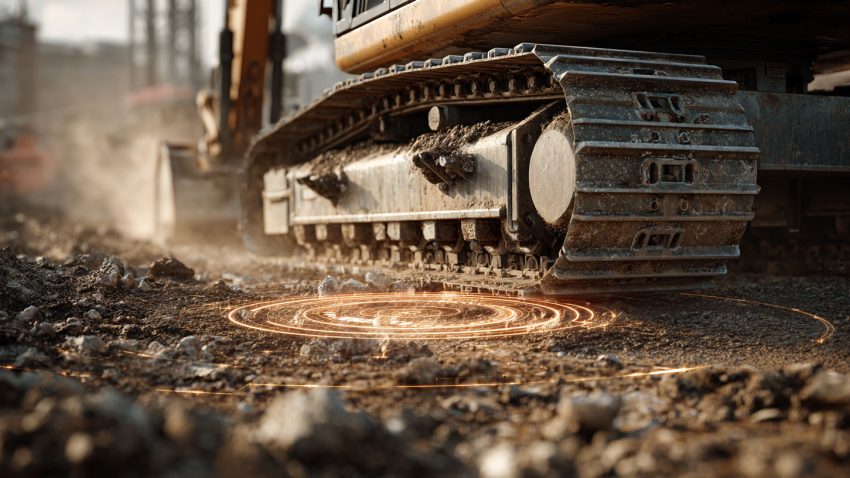AI-Powered Superintendents: 15 Innovative Ways to Transform Construction Materials Deliveries and Job Site Coordination
Table of Contents:
In the ever-evolving world of construction, the role of superintendents has taken on a new dimension, thanks to the integration of Artificial Intelligence (AI). These tech-savvy superintendents are not just overseeing the construction process; they are leading a digital transformation that is revolutionizing the way construction materials deliveries are managed and job site coordination is conducted.
In this comprehensive exploration, we delve into 15 groundbreaking ways in which AI-powered superintendents are reshaping the construction industry. From optimizing materials logistics to enhancing on-site traffic management, these innovations are streamlining processes, increasing efficiency, and ultimately paving the way for a more sustainable and technologically advanced future in construction. Join us on this journey as we uncover the transformative power of AI in the hands of construction superintendents.

The Digital Revolution in Construction
In the dynamic world of construction, the advent of Artificial Intelligence (AI) is ushering in a new era of efficiency and innovation. Superintendents in the construction industry are no longer just overseers of the building process; they are now pivotal players in a digital transformation that’s reshaping the entire landscape. This transformation is particularly evident in the management of construction materials deliveries and job site coordination.
The Role of AI in Modernizing Construction
The integration of AI into construction management has revolutionized how superintendents perform their roles. It’s not just about automating tasks; it’s about leveraging data-driven insights to make smarter, more efficient decisions. This shift towards AI-enhanced management is not merely a trend but a fundamental change in how construction projects are planned, executed, and delivered.
AI: A Game-Changer for Superintendents
AI-powered tools provide superintendents with unprecedented capabilities in logistics management, workflow optimization, and resource allocation. These tools are transforming the traditional challenges of construction management into opportunities for innovation and efficiency. By adopting AI, superintendents are setting new standards in the construction industry.
The Impact of AI on Sustainability and Efficiency
One of the most significant impacts of AI in construction is its contribution to sustainable practices. Through optimized resource management and reduced waste, AI is helping construction projects become more environmentally friendly. Moreover, AI-driven efficiency leads to faster project completion, reduced labor costs, and minimized environmental impact.
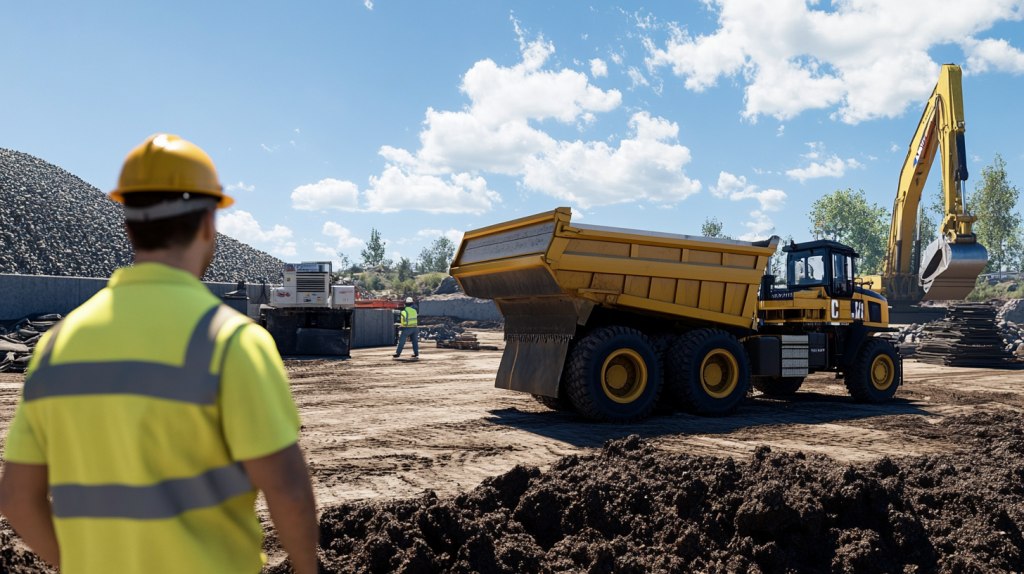
Now, let’s explore 15 innovative ways AI-powered superintendents are transforming the construction industry:
1. Predictive Materials Ordering
Predictive materials ordering, powered by AI, is a game-changer for construction superintendents. This approach utilizes predictive analytics to forecast the exact requirements for materials, factoring in project timelines, historical data, and external influences like weather conditions. This predictive capability ensures that materials are ordered just in time, reducing the risk of delays and excess inventory.
Revolutionizing Materials Logistics
The predictive ordering system streamlines the entire supply chain, from manufacturer to job site. It allows superintendents to plan ahead, ensuring that the right materials are available at the right time, thus avoiding costly project stalls. This level of foresight also helps in negotiating better terms with suppliers, leading to cost savings.
Minimizing Waste and Optimizing Costs
By accurately predicting material requirements, AI-powered ordering systems significantly reduce waste. This not only aligns with sustainable construction practices but also optimizes costs, ensuring that projects stay within budget.
2. Real-Time Inventory Management
Gone are the days of manual, error-prone inventory management. AI transforms this aspect of construction into a precise, real-time process. Superintendents can now monitor material levels constantly, ensuring that the balance between supply and demand is perfectly maintained.
Seamless Inventory Tracking
The real-time tracking facilitated by AI allows for a dynamic approach to inventory management. Superintendents can adjust orders on the fly, responding immediately to any changes in project scope or unexpected material usage.
Cost and Waste Reduction
This approach not only ensures that materials are readily available when needed but also prevents overstocking and shortages. By keeping inventory levels optimal, construction projects can avoid unnecessary expenditures and reduce the environmental impact caused by excess materials.
Related Articles:
45 Benefits and Tips of Construction Management Software for Superintendents
Drones in Construction: Top Ways They Enhance Safety and Minimize Risks
Best Guide to Construction Management Software
3. Smart Route Planning for Material Delivery
AI algorithms are revolutionizing the way construction materials are delivered. By calculating the most efficient routes, considering factors like traffic, weather conditions, and job site accessibility, AI enables superintendents to ensure timely, cost-effective deliveries.
Enhancing Delivery Efficiency
Smart route planning leads to significant savings in time and fuel costs. It reduces idle time for delivery vehicles and ensures that materials arrive when and where they are needed, keeping the construction process flowing smoothly.
Reducing Carbon Footprint
Efficient routing also has a positive impact on the environment. By minimizing the distance traveled and optimizing delivery schedules, AI contributes to reducing the carbon footprint of construction projects.
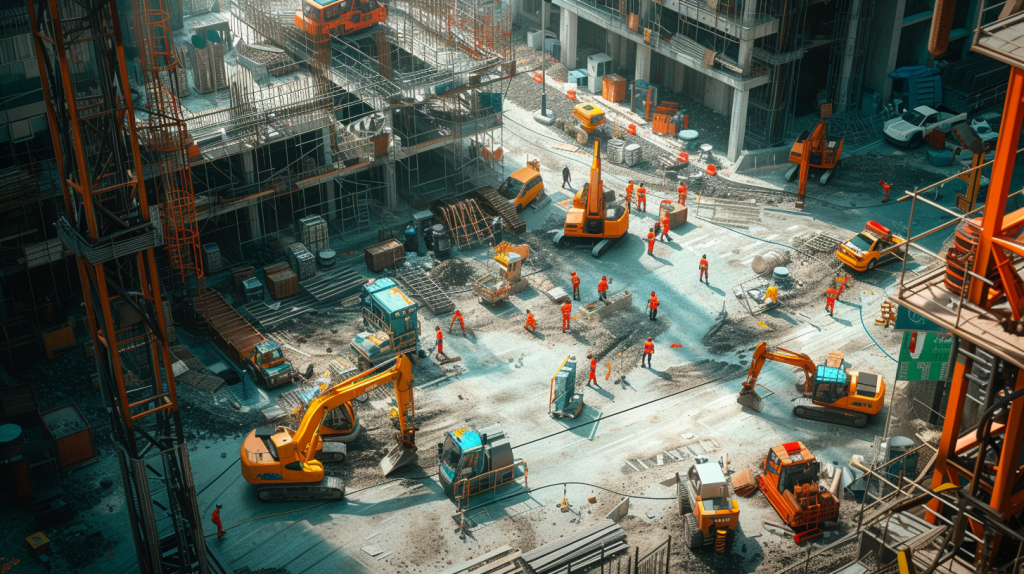
4. Traffic Flow Optimization on Job Sites
AI-driven traffic management systems are a boon for construction sites, especially large-scale projects. These systems help superintendents coordinate the flow of vehicles and materials around the site, reducing congestion and enhancing safety.
Minimizing On-Site Congestion
By efficiently managing the movement of trucks and heavy machinery, AI-powered traffic systems keep the job site organized and prevent bottlenecks. This streamlined flow contributes to a safer, more productive work environment.
Improving Material Delivery Timeliness
Effective traffic flow optimization ensures that materials are delivered to the right place at the right time. This precision in logistics is crucial for maintaining the momentum of the construction process.
5. Inventory Forecasting for Future Needs
AI’s ability to analyze consumption patterns and project progress enables superintendents to forecast future inventory needs accurately. This foresight is critical in keeping the construction process uninterrupted and efficient.
Anticipating Material Requirements
By predicting future material needs, superintendents can plan orders well in advance. This proactive approach prevents last-minute rushes and ensures that materials are available when needed, thereby avoiding costly delays.
Streamlining Supply Chain Management
Inventory forecasting also streamlines the entire supply chain. It provides suppliers with predictable demand patterns, allowing them to optimize their production and logistics, resulting in a more efficient and responsive supply chain.
6. Quality Control of Construction Materials
AI-powered systems are transforming the quality control process in construction. These systems can automatically inspect incoming materials, ensuring that they meet the required standards and specifications.
Ensuring High-Quality Materials
With AI-driven quality control, superintendents can be confident that the materials used in construction are of the highest standard. This not only improves the overall quality of the construction but also reduces the risk of future defects and failures.
Reducing Material Rejection Rates
Automated quality checks lead to a lower rate of material rejection. This efficiency not only saves time but also reduces waste, contributing to more sustainable construction practices.
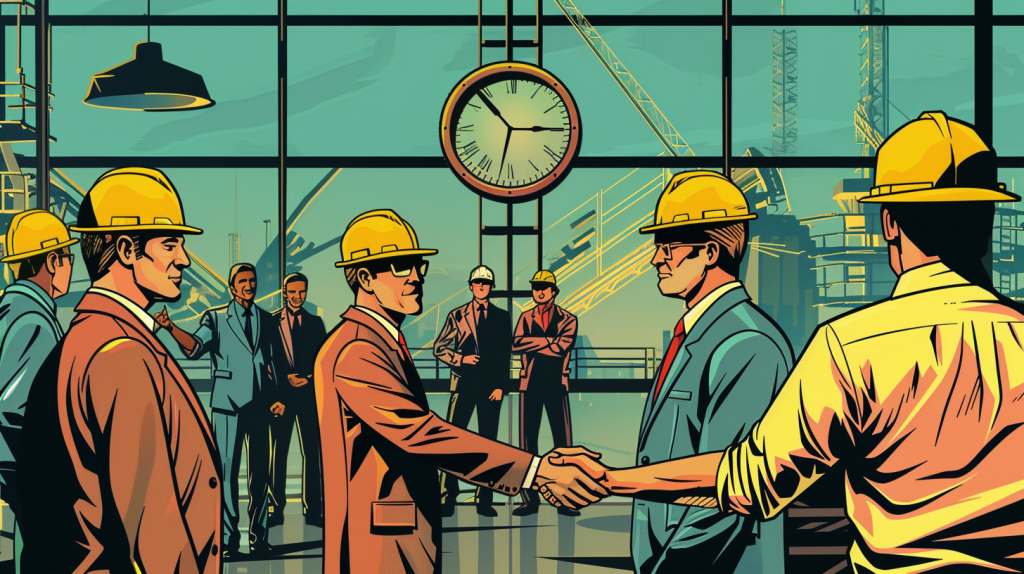
StruxHub
Discover how StruxHub can revolutionize your construction management. Contact us today!
7. Environmental Impact Assessment for Sustainable Construction
Superintendents are increasingly using AI to assess and minimize the environmental impact of their construction projects. AI tools help in optimizing routes, reducing emissions, and minimizing waste, thereby contributing to more eco-friendly construction practices.
Assessing and Reducing Carbon Emissions
AI-driven environmental impact assessments focus on reducing the carbon footprint of construction activities. By analyzing various aspects of the construction process, AI helps superintendents implement strategies that reduce greenhouse gas emissions.
Promoting Eco-friendly Construction Methods
AI tools also assist superintendents in choosing construction methods and materials that have a lower environmental impact. This promotes sustainable construction practices that are crucial for the long-term health of our planet.
8. Supplier Performance Analysis for Optimal Collaboration
AI plays a key role in helping superintendents evaluate and manage their relationships with suppliers. By analyzing factors such as delivery times, product quality, and cost-effectiveness, AI provides valuable insights for selecting and maintaining supplier partnerships.
Enhancing Supplier Selection
The insights provided by AI enable superintendents to make informed decisions about which suppliers to work with. This data-driven approach ensures that suppliers meet the high standards required for construction projects.
Improving Supplier Relationship Management
AI also aids in managing ongoing supplier relationships. By continuously analyzing supplier performance, superintendents can identify areas for improvement and work collaboratively with suppliers to enhance service levels and product quality.
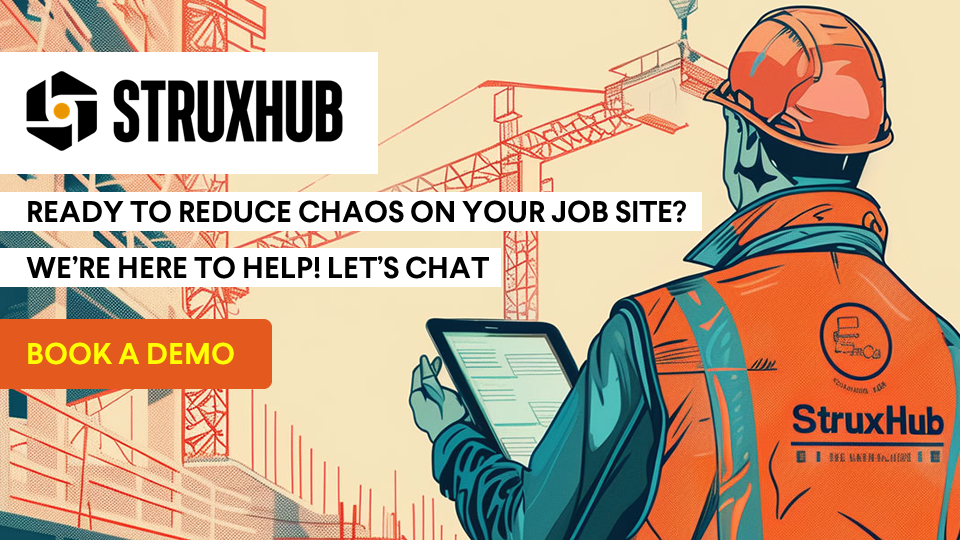
9. Crew Scheduling Optimization for Efficient Workflows
AI algorithms are revolutionizing how construction crews are scheduled. By aligning crew schedules with material delivery times and job site needs, AI ensures that labor resources are utilized most effectively.
Maximizing Labor Productivity
Optimized crew scheduling leads to increased productivity. Workers are on-site when needed, reducing downtime and ensuring that construction progresses smoothly and efficiently.
Adapting to Project Changes
AI-driven scheduling systems are adaptable, able to respond to changes in the construction process quickly. This flexibility is crucial in maintaining the momentum of construction projects, even when unexpected challenges arise.
10. Comprehensive Risk Assessment for Construction Projects
AI-powered superintendents conduct thorough risk assessments by analyzing data on potential hazards, weather conditions, and project complexities. This proactive approach enables the development of effective strategies to mitigate risks and ensure project success.
Identifying and Mitigating Construction Risks
By using AI to analyze various risk factors, superintendents can identify potential issues before they become problems. This foresight allows for the implementation of mitigation strategies, ensuring the safety and success of the construction project.
Enhancing Project Safety
AI-driven risk assessments contribute significantly to the safety of construction sites. By predicting and addressing potential hazards, AI helps in creating a safer work environment for all personnel involved.

11. Real-Time Communication for Enhanced Collaboration
AI facilitates real-time communication between job site personnel, suppliers, and superintendents. This seamless communication is essential for quickly resolving problems and improving collaboration across the construction project.
Streamlining Information Flow
Real-time communication enabled by AI ensures that everyone involved in the construction project is always up-to-date. This timely exchange of information leads to faster decision-making and problem resolution.
Building a Collaborative Construction Environment
Enhanced communication fosters a collaborative environment where ideas and solutions are shared freely. This collective approach is key to the success of construction projects, especially those with complex logistics and coordination challenges.
12. Cost Control Through AI-Driven Analysis
AI aids superintendents in controlling project costs by analyzing cost data and optimizing material usage. This approach results in better budget management and increased profitability for construction projects.
Optimizing Construction Budgets
By providing detailed cost analysis, AI helps superintendents identify areas where expenses can be reduced without compromising quality. This careful financial management is crucial for the economic success of construction projects.
Reducing Material and Labor Costs
AI-driven cost control strategies include optimizing material usage and labor scheduling. By ensuring that resources are used efficiently, AI helps in reducing overall project costs, leading to more profitable construction projects.
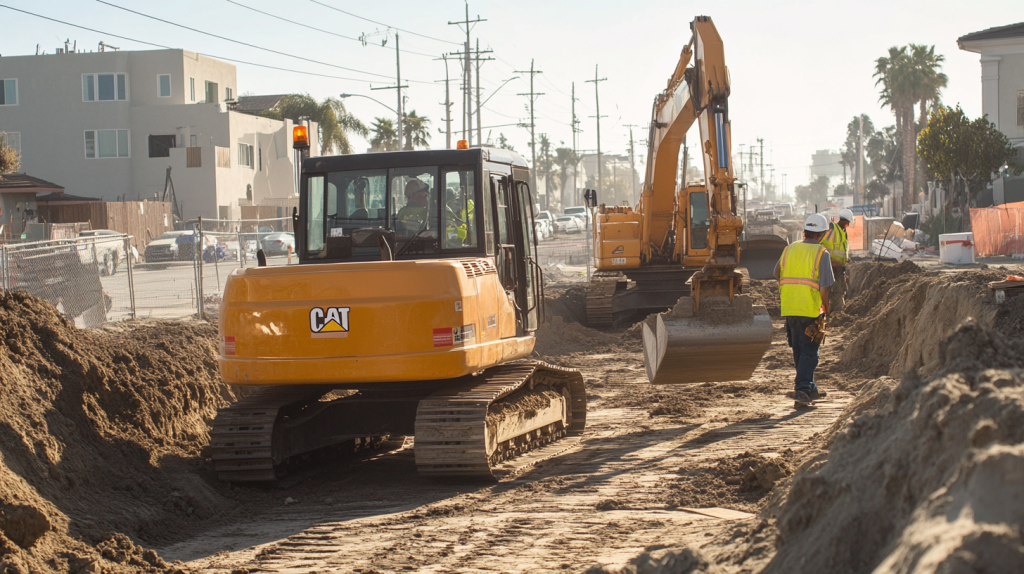
13. Compliance Monitoring for Regulatory Adherence
AI-powered systems monitor regulatory compliance, ensuring that construction activities adhere to safety and environmental standards. This vigilance is essential for reducing the risk of fines and delays associated with non-compliance.
Ensuring Adherence to Construction Regulations
AI helps superintendents stay updated with the latest construction regulations and standards. By continuously monitoring compliance, AI ensures that construction projects meet all legal requirements.
Avoiding Legal and Financial Penalties
Compliance monitoring via AI reduces the risk of legal and financial penalties that can arise from regulatory violations. This proactive approach not only saves time and money but also upholds the project’s reputation and integrity.
Related Articles:
The Best Daily, Weekly, and Monthly Checklist for Construction Superintendents

14. Data-Driven Decision-Making for Optimal Construction Outcomes
Superintendents rely on AI-generated insights to make informed decisions about various aspects of construction. Whether it’s adjusting delivery schedules, reallocating resources, or implementing new construction techniques, data-driven decision-making leads to more efficient and successful construction processes.
Leveraging AI for Strategic Decisions
AI provides superintendents with a wealth of data and analytics, enabling them to make strategic decisions that positively impact the construction project. This informed approach ensures that every decision is based on solid data and insights.
Adapting to Changing Project Dynamics
Data-driven decision-making allows superintendents to adapt quickly to changing project dynamics. By relying on AI for insights, they can make timely adjustments to schedules, resources, and strategies, keeping the construction project on track.
15. Embracing Continuous Improvement in Construction Management
AI enables superintendents to continuously collect and analyze data on project performance and materials usage. This information is invaluable for identifying areas for improvement, fostering a culture of continuous innovation in construction management.
Identifying Opportunities for Improvement
By analyzing project data, AI helps superintendents identify areas where processes can be optimized. This ongoing assessment is crucial for enhancing efficiency and productivity in construction projects.
Driving Innovation in Construction
The insights gained from AI analysis encourage innovation in construction management. Superintendents can use this information to implement new technologies, processes, and strategies, continually pushing the boundaries of what’s possible in construction.
AI – A Catalyst for Construction Transformation
As AI technology continues to advance, the role of superintendents in construction is becoming increasingly vital. These forward-thinking professionals are at the forefront of the industry’s digital transformation, harnessing the power of AI to streamline materials deliveries, enhance job site coordination, and build a more efficient and sustainable future for construction projects worldwide. The integration of AI in construction management is not just an enhancement; it’s a revolutionary step towards a smarter, more efficient, and more responsible construction industry.

Unlock the Full Potential of Your Construction Projects with StruxHub
StruxHub enhances efficiency and coordination across all project phases, providing a single source of truth that eliminates silos and fosters collaboration. Real-time updates, financial management tools, and seamless commvunication features ensure that all team members and stakeholders are aligned and informed, reducing the risk of errors and delays. With comprehensive solutions for document management, risk mitigation, and quality control, StruxHub maintains project integrity and safety, while mobile access and integration capabilities further enhance project flexibility and efficiency.
StruxHub’s Key Features and Benefits:
- Advanced Delivery Management: Automate and optimize your delivery schedules, ensuring materials arrive just in time, every time.
- Site Communication: Utilize georeferenced maps and instant messaging to keep every team member informed and aligned.
- Construction Materials Management: Track inventory levels and manage materials procurement with ease, reducing waste and avoiding project delays.
- Construction Safety & Inspection Workflows: Implement customizable mobile forms for conducting safety inspections and managing compliance documentation effortlessly.
- Short-Term Scheduling: Visualize project tasks with detailed floor plans, linking each activity to specific locations for better planning accuracy.
- Construction Resource Management: Efficiently allocate personnel and equipment, maximizing productivity and reducing idle time.
StruxHub’s Product Offering:
- StruxHub Deliveries: Simplifies the coordination of incoming deliveries, ensuring materials and equipment are precisely timed to project needs.
- StruxHub Logistics: Offers intelligent site logistics planning, from crane scheduling to space allocation, for smoother operations.
- StruxHub Safety: Elevates on-site safety standards with easy-to-use tools for inspections, permits, and incident reporting.
- StruxHub Scheduling: Enhances project timelines with intuitive scheduling tools that ensure tasks are completed efficiently and on time.
With StruxHub, construction companies can look forward to a streamlined, more efficient project execution that delivers on time and within budget. Embrace the power of innovation and take your construction projects to the next level.
Don’t miss out on the opportunity to optimize your construction management processes with StruxHub. Sign up for a free demo today. Let’s build smarter, together.

